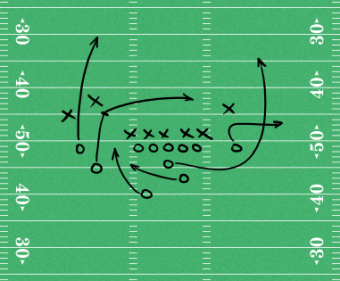Rocks & Hard Places
 Loyalty vs. Integrity
Loyalty vs. Integrity
Earlier this week I was in Chicago for a meeting of well known health care organizations to address a nagging and persistent issue in health care: dealing effectively with patient safety and quality issues. Like many meetings that involve important issues in health care, the first group of professionals singled out for criticism was physicians. More specifically disruptive, hostile, arrogant, and intimidating physicians.
A few brave souls mentioned that the problem is not confined to physicians - senior nurses can be far worse than physicians in treating other nurses. Other health care professionals also exhibit these behaviors. But there's no question that as physicians, we're often at the center of these issues, whether as the perpetrator, or in trying to deal with the organizational issues that arise from these unpleasant, uncomfortable, and dangerous situations.
How would we deal with a Charlie Sheen on the medical staff? Everyone in the organization, from the board on down to the front line professionals involved with patient care, should feel responsibility and accountability to improve the situation.
According to attendees at the meeting, every time this issue is brought up, the lines at the microphones become huge. The emotion and frustration of those commenting and questioning is noticeable. Though the issue may be getting attention, it's hard to see improvement across the industry.
The overt behaviors described above are only the tip of the iceberg. Underneath the surface are behaviors that are passive and insidious. If physicians and others behave this way toward colleagues, how do they treat patients? It may be the more subtle actions and behaviors of professionals that ought to be addressed more forcefully.
How many times have you heard a hospital or health system CEO say something like, "I hope we can count on your loyalty here", or "Whose team are you on, anyway?", when discussing a quality or safety issue that involves the inevitable big admitter, or friend of the board chair? If patients are being harmed, and the facts are unassailable, these behaviors from the leaders of the organization may be the worst possible kind of intimidation! Never out of control, always stated calmly, and spoken with full knowledge of the power gradient of the speaker, leaders who choose to behave this way set examples for the entire organization. These are not safe places for patients, and are not safe places to work.
Professionals who find themselves caught in organizational situations like this have a gigantic ethical issue to deal with - often with no one else there to support their struggle to do the right thing. As physicians, I hope we can join their struggle, and insist that the organization do the right thing, and not try to sweep embarrasing or unpleasant events under the rug.
My oldest son is a commercial pilot. He taught me, along with Jeff Skiles (co-pilot on the Miracle on the Hudson flight), that we should seek to make our mistakes visible, rather than hide them. We can't fix what we don't acknowledge to be a problem. We can't prevent events of harm from happening to someone else if we hide our failures.
I saw a great quote about loyalty recently.
"If your boss asks for your loyalty, give him/her integrity. If your boss asks for integrity, give him/her loyalty."
As a leader, I will never ask for loyalty. Why? Because loyalty must be granted - willingly and without coercion by others in the organization. All too often, organizations ask for loyalty from employees, but do nothing to show loyalty in return.
As professionals, I hope we ask those who work with us for integrity - not loyalty.





 Post a Comment
Post a Comment
